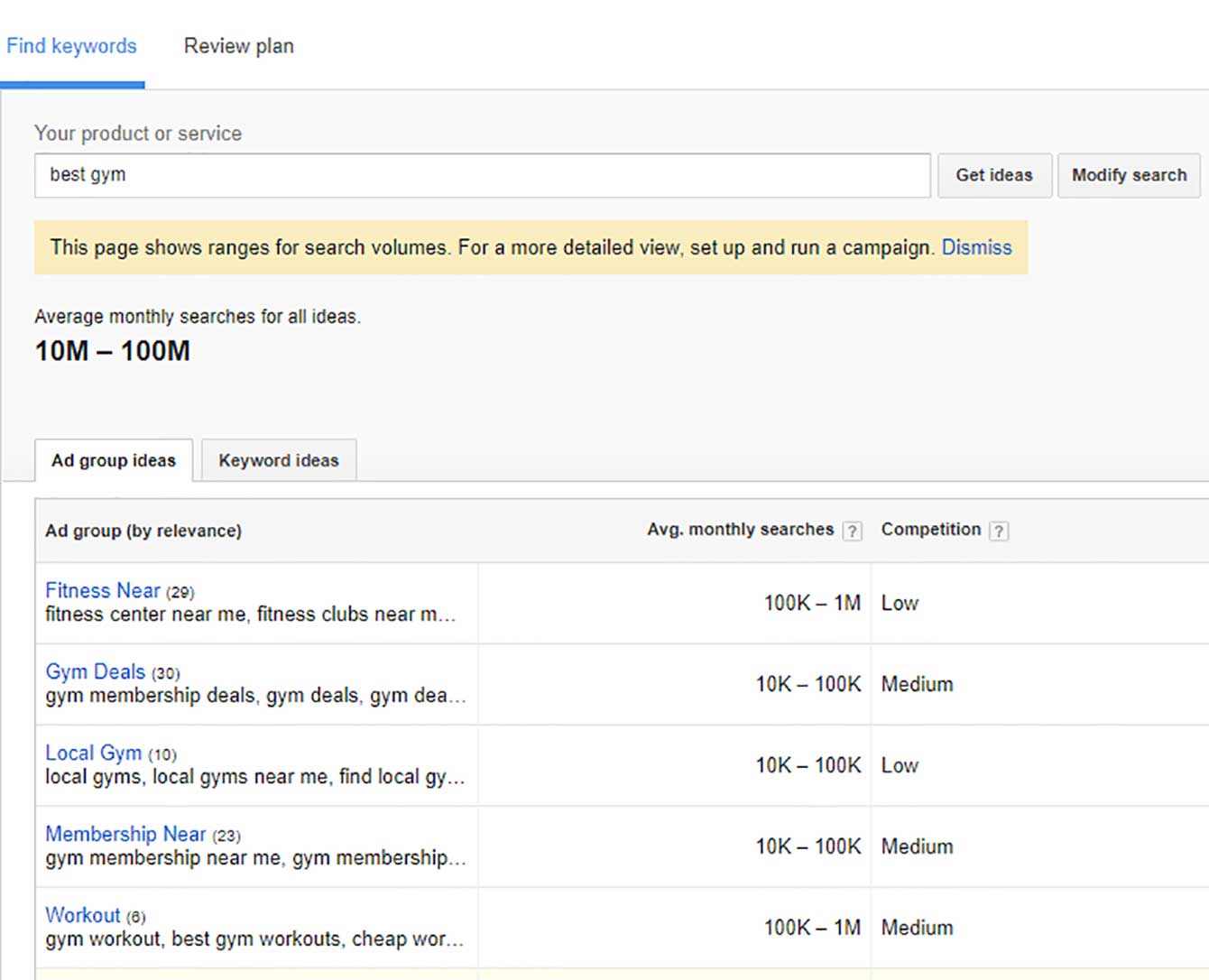Learn how to speak with search engines in their own language using SEO keywords.
What Are SEO Keywords?
Search engine optimization keywords are the key words and sometimes phrases used in the content of a website in order to make that content relevant to the keywords and phrases used by people who search for something on Google, Bing, Yahoo, or any other search engine.
Although the definition may seem a bit vague at first, it does make sense when you put the principles described here to practice.
Keywords in Action
For example, if I am looking for an article about the best chest exercises for beginners, I would probably expect that article to have keywords and phrases like «chest», «exercises», «beginners», «chest exercises», «chest exercises for beginners», etc.
I am on my way to looking like this guy here so cut me some slack.

Naturally, owners of the websites specializing in that type of content (bodybuilding, gym workout) would assume that someone might be interested in one of the basic muscle groups to develop for beginners.
Having assumed that, the owners of those websites should hire a copywriter to write an article about chest exercises for beginners (or would write the article themselves).
Of course, not many beginners would be interested in reading just a piece of text so it would make perfect sense to spice it up a little bit and make it listicle/top instead.
People are naturally more inclined to respond to pre-filtered, pre-chosen information when they are searching for something new. See, I’m a busy man – can’t afford myself to spend hours researching chest exercises and comparing them to each other in order to figure out which ones are better. Would save a lot of time and effort if you already decided what’s best.
Once everything is set up, I type my keywords in the Google search box, some magic happens and – voilà! – I see a list of articles relevant to my search query. Why and how they are ranked the way they are ranked on that page is a different story, and we will get to that soon.
How to Choose Between Different Similar Keywords and Phrases
Don’t let the title of this paragraph confuse you – what it means is that you can use various keywords and phrases to express the same thought.
Obviously, there are much more ways of searching for the same thing that I did in the previous example, e.g.:
- Top exercises for chest
- Beginner’s chest workout
- Best exercises for pecs
- Optimal pectoral muscle workout for beginners
The list could go on and on but judging by the diversity of the keywords and phrases that are already on it, one can have a hard time choosing the best combination.
Shooting out in all directions by stuffing as many keywords as possible in one article won’t make much sense. Either the article will become totally unreadable or Google will rule out the article as «not user-friendly content» and sink it down in the search engine results.
Trying to read minds of users is even worse – people often pay complete disregard to the rules of grammar and (sometimes) common logic when they are typing their search queries in a hurry.
The only way to tell is to use specialized keyword research tools. Some of the most popular ones are:
- Google’s own Keyword Planner tool
- SERPs Keyword Research Database
- Keyword Tool
Let’s take a look at how they work using Google Keyword Planner as an example.
Using Google Keyword Planner for Choosing Keywords
Keyword Planner was designed by Google specifically for the purposes of researching, comparing, and choosing the right keywords for your web page.
It works pretty simply:
- You start by typing in some words and phrases that are most commonly associated with the subject of your page (usually it is the product or service you would like to offer)
- Then you compare the keywords by their popularity and other factors.
- Finally, you choose, which keywords to use for your page.

It is worth noting that Keyword Planner is a part of Google Ad Words, which is a service for setting up, deploying, and tracking contextual advertising in Google ecosystem.
90% of Google’s revenue comes from advertising, which more or less justifies its existence in general. Yep, kids, Google is nothing more than a huge ad services provider – all the blah-blah-blah rhetoric about changing the world to the better and doing it for the greater good is just your average everyday marketing bulls*it.
Love it or hate it, Google was the first to figure that out, and it’s up to them to set the rules. All we have to do is comply and adapt.

Back on the topic of Keyword Planner – while researching for keywords, you will also see something called «bids» or «bid estimates». These bids are made by people who compete for the same keyword or key phrase. The one who offers the highest price gets the keyword.
See, just like I told you – Google is evil.
Head Keywords vs. Long-Tail Keywords
Every search query can be associated with two main types of keywords:
- Broad and far-reaching in meaning (they are also called «head keywords»)
- Specific combinations of several terms (aka «long-tail keywords»)
In the previous example of ours, head keywords may be «chest workout» «best chest exercises» while long-tail keywords would most likely extend to something like «top 10 best chest exercises for beginners» or «chest workout ideas for beginners who want to gain muscle».
Obviously, the latter will be far more popular because people are more likely to use fewer words and be less precise with their searches. However, that also means that competition among pages that feature these keywords will also be quite stiff.
If you are just starting out as a fitness website, no matter how much time you spend on optimizing your keywords, you will never get even close to the leaders who have been there for years.
Likewise, long-tail keywords are an excellent opportunity for a fresh website to earn some organic traffic. It turns out that the more precise a user is with the search, the more chances that he/she will be satisfied with the first result.
Using Keywords on Your Web Page to Get Traffic

Now that you know what keywords and phrases to use for that certain page, it is time to actually use them.
The process of inserting the right keywords and phrases in your web page content is a part of the bigger process called «On-Page SEO» Here is an article on my blog that talks about that in detail – «On-page SEO Checklist: How to Build a Perfectly Optimized Website Page».
The basic principle of using keywords is fairly simple: keywords should be placed on each page of your site in the areas that both bots and humans would normally look to make sure that you have what they have come for.
Usually, these areas include:
- The title of the web page
- The URL of the web page (e.g., https://vgamp.com/on-page-seo-checklist-build-perfectly-optimized-website-page/)
- The page copy (text), not only the keyword itself but also a few of its variations («chest workout», «best chest workout», «chest workout for beginners», etc.)
- The meta tags of the web page, especially the meta description (it is in the HTML code of the page)
- Image file paths and in the «alt text» tag of the images on the page
- The keyword itself as an anchor text in backlinks that lead to the page from elsewhere on the site
One last thing to consider is the keyword density. As Google rules and recommendations are constantly changing, it is very difficult to predict what will be the norm in the nearest future.
If you are on your way to optimize your website and choose the right keywords, it will not be unwise to consult a specialist, who will run a quick SEO checkup of your website, define the main problem, and come up with the solutions.
VG specialists are here 24/7 to help you out with this task.
Conclusion
Thanks for making it to the end of today’s «SEO Keywords: The Foundation of Proper Search Engine Optimization» article – I hope you’ve learned something new.
The right thing to do would be share this article with your friends on the social networks – just click on one of the icons of social media, it’s that easy.
If you have further questions on the subject, please write them in comments – I’ll be glad to answer.
If you are hungry for more article on SEO, be sure to check these first:
What Is SEO and How It Works: In a Nutshell
Top 17 Search Engine Optimization Techniques That Will Work in 2018





Comments0